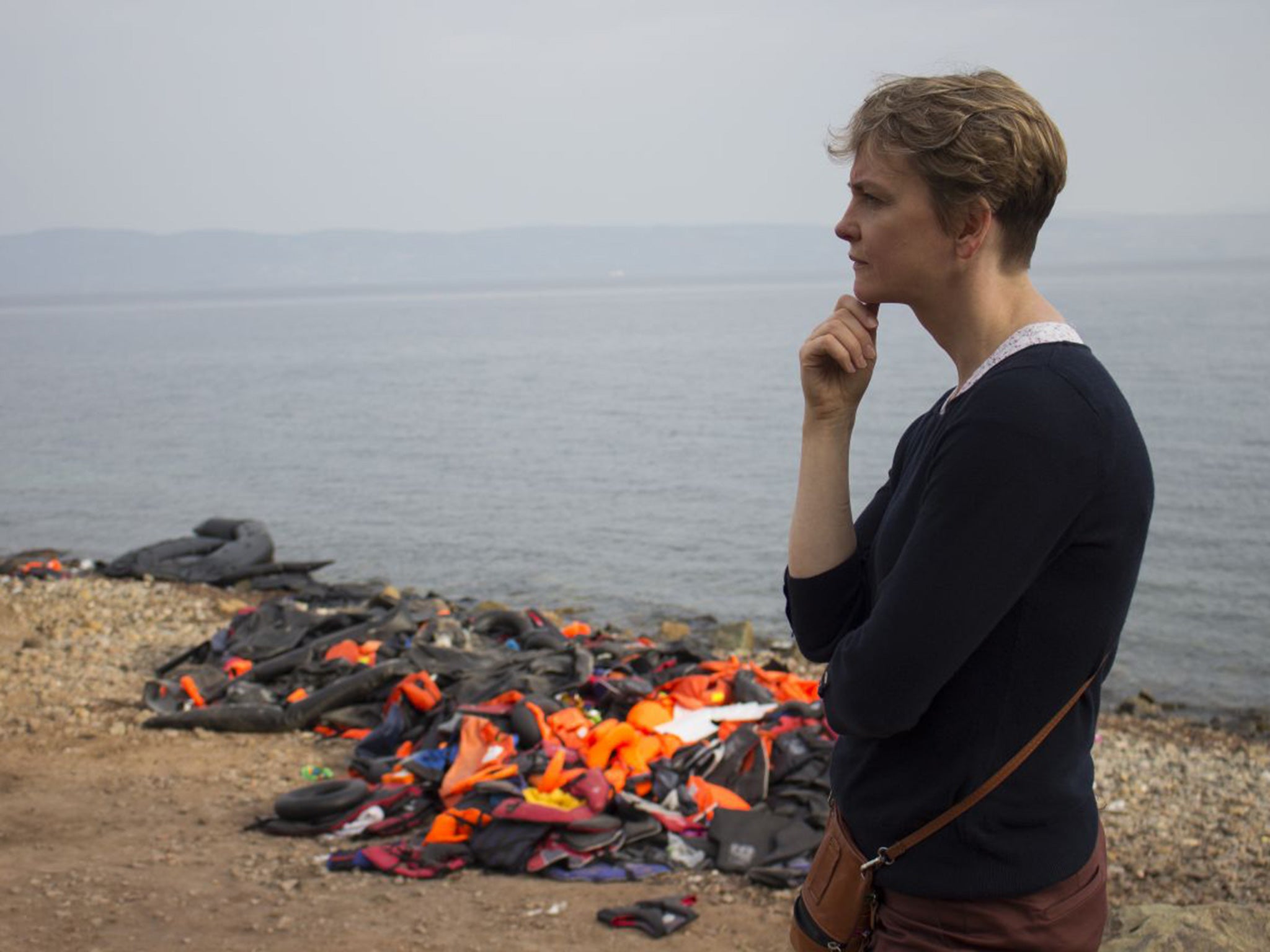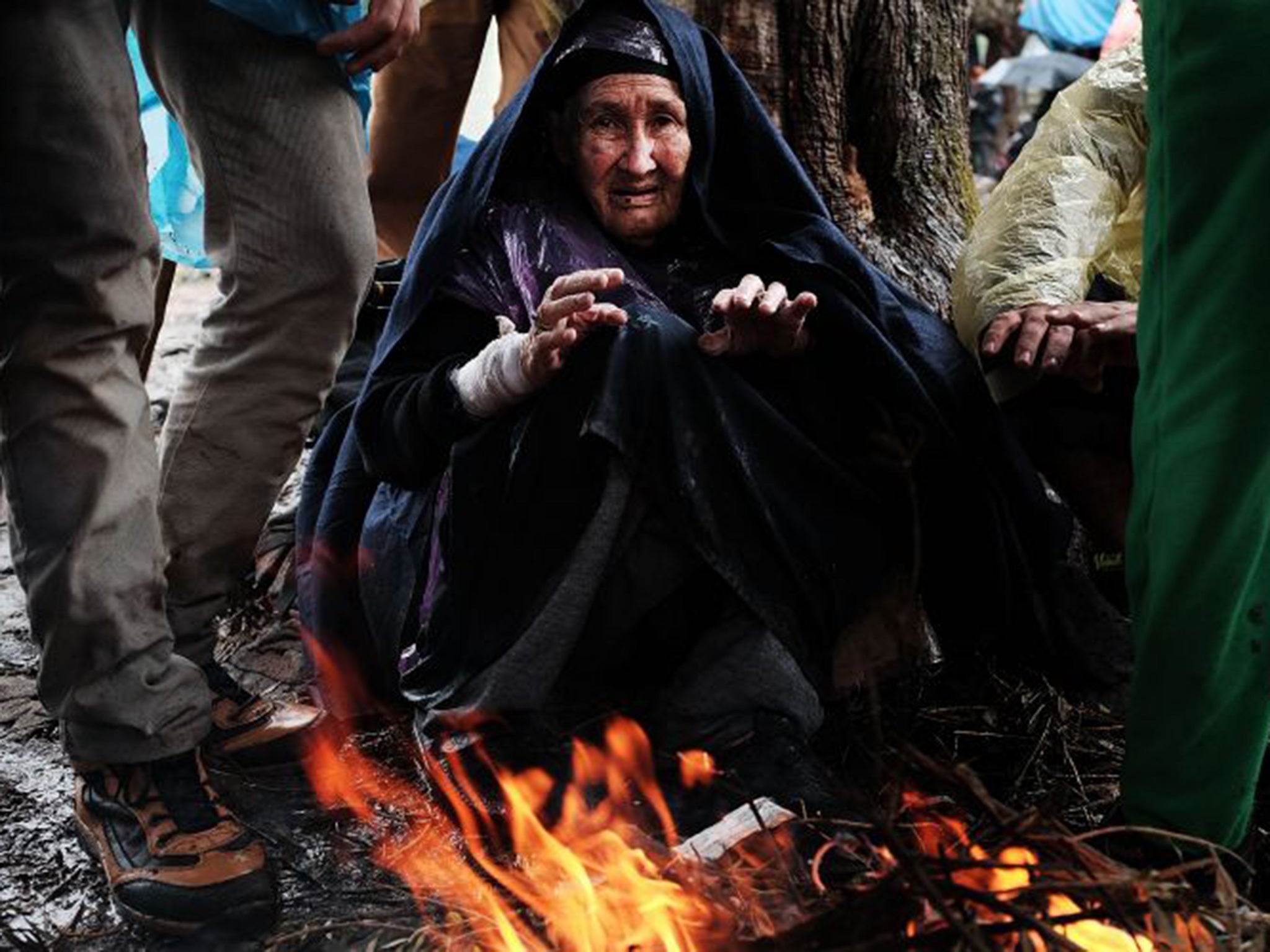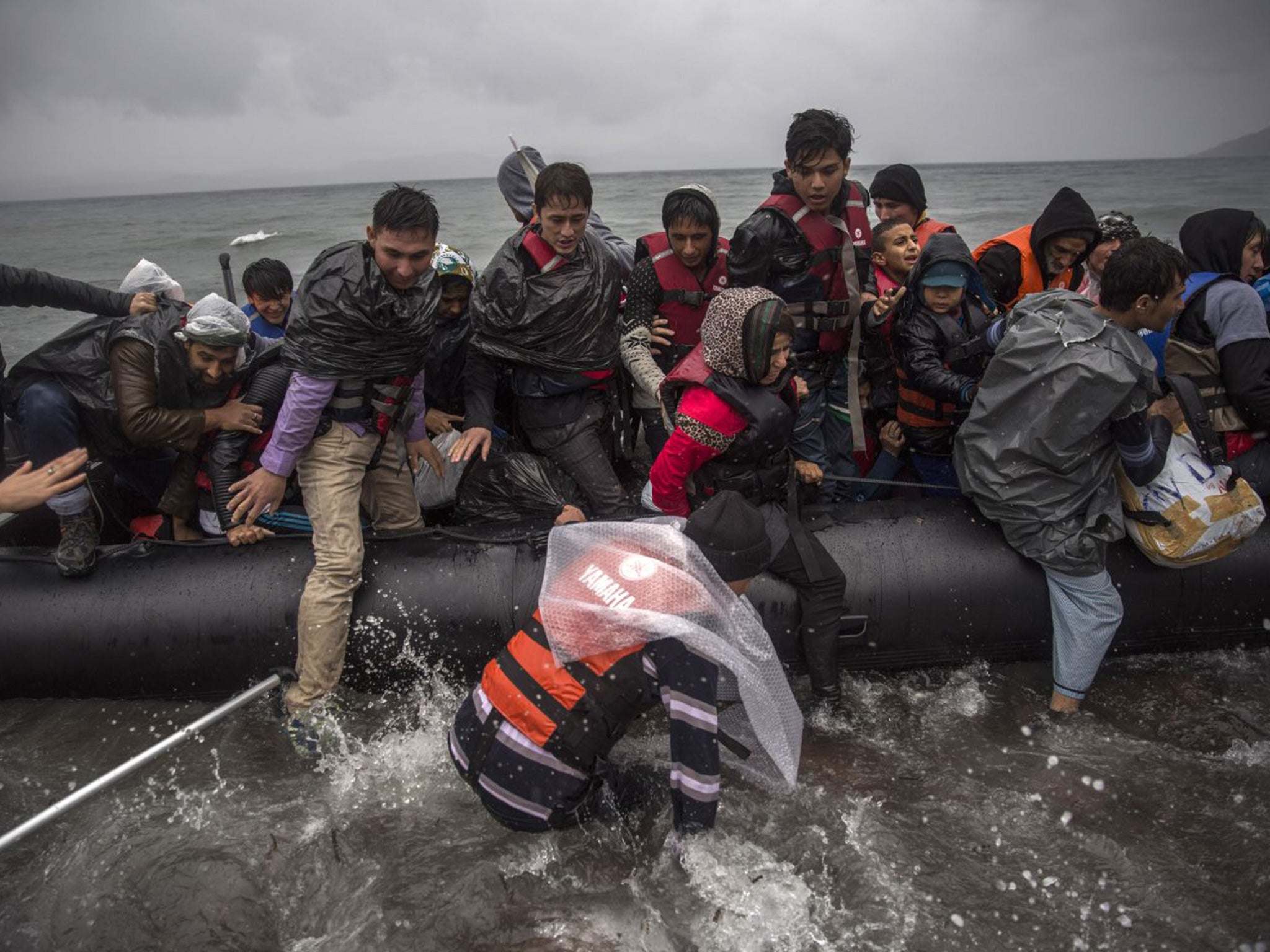On Lesbos with Yvette Cooper: 'It makes me very angry we can't do better than this - we are failing refugees'
Labour’s refugee task force chief visits the Greek island coping with 7,000 refugees a day

Your support helps us to tell the story
From reproductive rights to climate change to Big Tech, The Independent is on the ground when the story is developing. Whether it's investigating the financials of Elon Musk's pro-Trump PAC or producing our latest documentary, 'The A Word', which shines a light on the American women fighting for reproductive rights, we know how important it is to parse out the facts from the messaging.
At such a critical moment in US history, we need reporters on the ground. Your donation allows us to keep sending journalists to speak to both sides of the story.
The Independent is trusted by Americans across the entire political spectrum. And unlike many other quality news outlets, we choose not to lock Americans out of our reporting and analysis with paywalls. We believe quality journalism should be available to everyone, paid for by those who can afford it.
Your support makes all the difference.Yvette Cooper has a reputation for being a composed and thoughtful politician. The former Labour leadership candidate thinks carefully when she speaks out, and she isn’t prone to outbursts of emotion.
On the north shore of the Greek island of Lesbos, however, where up to 7,000 refugees are arriving daily on flimsy dinghies, it took just a few moments for that calm facade to fade. Europe’s failure to help them left her furious.
It was a small child’s life vest that first prompted an outburst from the normally reserved political veteran, who has been an MP since 1997.
The vest was bright green and bore the smiling image of Caillou, a children’s cartoon character. It was designed to be used in a swimming pool; instead it had been worn by a young refugee, probably one of the Syrians who make up 70 per cent of arrivals, on the journey from Turkey to the shores of the European Union.
“These life vests are for kids in swimming pools,” she said, obviously disturbed by the vast scale of human tragedy unfolding on this small island of just 80,000 people. “It’s not designed for crossing the Mediterranean in October. It just makes me feel angry that we can’t do better than this. Europe has so much ability to do so much, but we are failing these people.”

The world’s attention may have moved to border battles and unrest in Slovenia and the Czech Republic, further to the north, but the EU’s failure to act is perhaps more stark on Lesbos.
A backlog of more than 16,000 refugees are awaiting registration on the island in terrible rain-drenched conditions, though UNHCR officials whisper that the real figure may be “far higher”, with as many as 210,000 refugees expected to arrive by the end of the month after 160,000 arrived in September.
Cooper is quick to note that here the total sum of the EU’s contribution at the main point for refugees into Europe is two German police officers. They scan the sea vigilantly with binoculars and with pistols at their hips, but can do nothing for the tearful, exhausted and hungry refugees who arrive on an endless stream of dinghies from the Turkish coast, just 10 miles away. They can offer no food, no water, no shelter.
Of the Greek authorities, the only sign is a single scruffy policeman. It’s the same story at the Moira refugee camp, where thousands of refugees await registration in squalid conditions and riot police were called on 19 October as groups of refugees turned against each other.
Thankfully, the waters off Lesbos were calm earlier this week when Cooper visited. But last week seven refugees, including a newborn baby and three young children, drowned after their wooden boat and a coast guard vessel collided. “Imagine being on that boat with your children. It wouldn’t take much to see another tragedy here,” said Cooper, as she watched the first boat of the morning approach the coast.

Cooper, who is chair of Labour’s refugee task force, was in Lesbos to meet UNHCR officials and staff of IsraAid, a non-governmental Israel-based aid agency offering vital psychosocial support and emergency aid on the island. It’s easy to be cynical about Cooper, who took on the role after she felt unable to serve in Jeremy Corbyn’s Shadow Cabinet. But she spoke out about the crisis in the Mediterranean long before the death of Aylan Kurdi this summer. And her trip to Lesbos is the first in a number of planned visits along the refugee trail this winter.
On the northern shore, she watched from a life-jacket strewn beach as four boats arrived in less than an hour, each practically foundering on the shore, with refugees panicking and throwing luggage into the sea as they drew close, fearful their vessel was about to be swamped.
Each rubber boat contained around 50 to 60 people, a mixture of families, teenagers travelling alone, and young men. Most were Syrian, but there were also Iraqis, Afghans and Iranians. “It makes me so angry,” Cooper said repeatedly, as the refugees flocked ashore, some destroying their travel documents in an apparent attempt to claim to be Syrian in the hope that this would mean faster registration on the island and quicker transfer to the Greek mainland.
Among the first off the boats was Mortezra from Helmand province in Afghanistan. It had taken him two months to get this far, at a cost of $3,000 (£2,000) paid to smugglers for a place on a boat designed for 10 people, but carrying 50. “The smugglers beat us. I am going to be with my sisters in Germany. Afghanistan is over. I want progress,” he said.
He broke off his conversation with Cooper’s team to unwrap his phone and call his mother to let her know he was safe. He is just 13 years old, one of many unaccompanied children sent ahead, who have left aid officials “terrified” of sexual exploitation of vulnerable minors.
Watching Cooper is Manal Shehade, IsraAid’s project manager for the island. “From what we’ve seen, there is very little EU assistance on Lesbos. It is not visible. I’ve seen refugee camps back home in Gaza and the West Bank, but I’ve never seen anything like this in Europe. Sometimes, it’s hard to believe we are in the EU here.”
When, during a lull in arrivals, Cooper tells her that Britain has pledged to resettle just 4,000 refugees a year, she is shocked. “We see more than that in a day here,” she said. “The help here needs to be doubled. Winter is coming and people are sleeping outside.”
Later Shehade, who oversees a psychosocial team who provide vital specialised trauma counselling to refugees, shows Cooper around the Moira registration centre for refugees.
It’s a grim place. Hunger is rife, sanitation is appalling, and thousands are sleeping outside for up to five days while they wait for papers from the Greek police to allow them to travel to Athens. It is part-funded by the EU and is an official “hotspot” for arrivals. David Cameron has promised that UK funds will support these centres, but there is no official Greek, UNHCR or EU presence on the ground when Cooper visits, just seeming anger and resentment.
Again, Cooper is furious as she is approached by a Syrian family who have been waiting for papers for four days. Their question is simple: “Where is Europe?” Another man, who claims to have been a general in President Assad’s army, interrupts: “Why has Europe abandoned us here? We are educated people.”
There is a real sense of tension at Moira as Cooper walks on alone through the tent city.
“The situation here is going to get worse until we scale up the response to the size of the humanitarian crisis,” she said, echoing the words of UNHCR officials on the island who privately admit that they fear there will be more violence at the camp this weekend.
“David Cameron rightly talk’s about Britain’s financial contribution, but there is no sign of it here, nor is there any sign of British leadership in this crisis,” she added.
As Cooper’s group leave the camp, Shehade shows the Labour MP a picture drawn by a 15-year-old Syrian boy from one of IsraAid’s therapy sessions. It’s of beheadings, men with AK-47s, blood, a frantic boat journey and drowning at sea. “History is being changed in front of our eyes here. Europe is changing,” said Shehade, her voice trailing off.
Cooper is silent for the longest she has been all day, before responding thoughtfully. “This crisis is huge and overwhelming, but Europe contains some of the wealthiest nations on earth,” she said. “It can’t be beyond us to work together to fix this. Britain needs to be part of the solution.”
Join our commenting forum
Join thought-provoking conversations, follow other Independent readers and see their replies
Comments